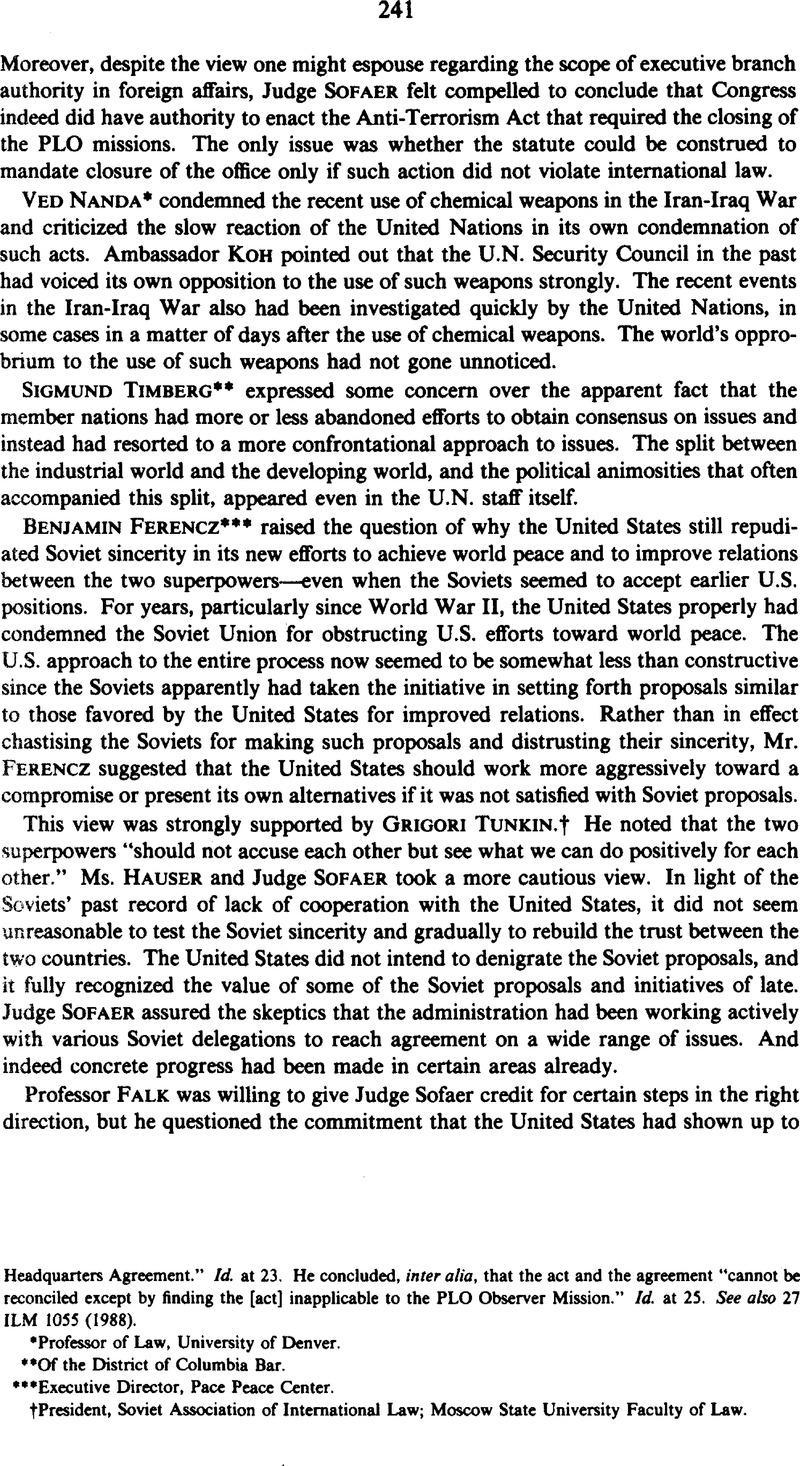No CrossRef data available.
Article contents
Discussion
Published online by Cambridge University Press: 28 February 2017
Abstract

- Type
- The Year of International Law in Review
- Information
- Copyright
- Copyright © American Society of International Law 1988
References
1 At the time of the plenary session, the International Court of Justice had not ruled on the appropriateness of arbitration in the closing of the mission. On April 26, 1988, the World Court ruled unanimously that the United States must submit to arbitration the dispute resulting from the controversial legislation ordering the PLO to close its U.N. mission [27 ILM 712, 800 (1988)]. As of the writing of this report, the U.S. State Department continued to hold the position, as announced on the day the Court handed down the decision, that the action by the World Court was “premature.” The Reagan Administration’s position over the ICJ ruling was dramatically represented at the court proceedings themselves: there were no U.S. representatives present as the President of the Court read the opinion. Unlike his decision in the Nicaragua cases, concerning the illegal mining of Nicaraguan harbors, Judge Stephen M. Schwebel joined in the Court’s opinion concerning the PLO mission. Judge Schwebel did note in an appendix, however, that the United States did not dispute the obligation for arbitration, only whether a dispute already had arisen to make the arbitration necessary at that time.
2 27 ILM 712, 715 (1988).
3 For a discussion of this conflict, see the panel on the PLO Mission Controversy, infra at 534.
4 25 ILM 1023 (1986).
5 Editor’s Note: On June 29, 1988, amended July 6, 1988, Judge Edmund L. Palmieri of the U.S. District Court for the Southern District of New York decided United States v. Palestine Liberation Organization, 695 F. Supp. 1456 (S.D.N.Y. 1988), available in 1988 U.S. Dist. LEXIS 6388. Noting “the special responsibility which the United States has to provide access to the United Nations under the Headquarters Agreement,” id. at 6, Judge Palmieri found no “clear legislative intent that Congress [in the Anti-Terrorism Act] was directing the Attorney General, the State Department or this Court to act in contravention of the Headquarters Agreement.” Id. at 23. He concluded, inter alia, that the act and the agreement “cannot be reconciled except by finding the [act] inapplicable to the PLO Observer Mission.” Id. at 25. See also 27 ILM 1055 (1988).




